The CMP Review — Week of March 20
March 20, 2023

“I am convinced … that there is a North-west Passage to the intellectual world; and that the soul of man has shorter ways of going to work, in furnishing itself with knowledge and instruction, than we generally take with it … there is a North-west Passage, and Charlotte Mason has found it for us.”
— H. W. Household, PR35, p. 92
📷 @aolander
March 21, 2023
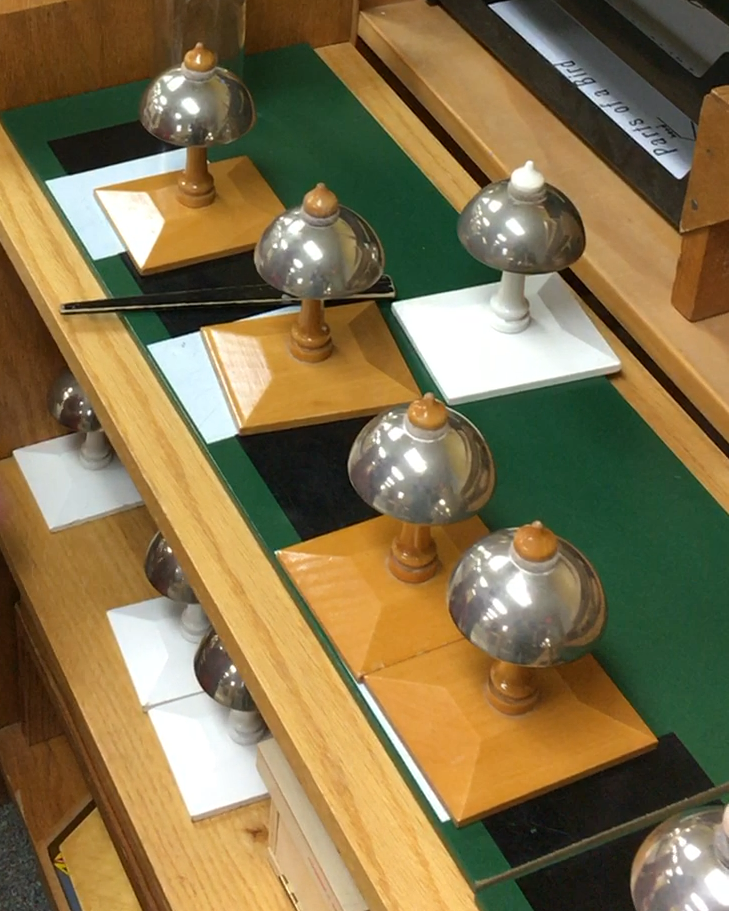
In 1917, Maria Montessori’s latest book appeared in English. Published in London, it spanned two volumes and included details on many topics, including Montessori’s guidance on the teaching of music and grammar. The publication attracted the attention of Annie Jessy Curwen, commonly known as Mrs. Curwen. This was none other than the innovative music teacher responsible for The Child Pianist, a book and method celebrated by Charlotte Mason.
After reading Montessori’s book, Mrs. Curwen felt compelled to write a review. And after reading her review, Charlotte Mason felt compelled to publish it in the Parents’ Review. The subject of how to cultivate the child’s inborn love and understanding of music was too important to leave to chance. Mrs. Curwen wanted to have her say, and Mason wanted to give her the platform.
What affinity did Curwen find between The Child Pianist and The Advanced Montessori Method? Were they two branches growing from the same tree, or perhaps even different sides of the same branch? Or were they perhaps not so similar after all? There’s only one way to find out. Read or listen to the thought-provoking and at times amusing account of one philosophy of education by the architect of another. Find it here.
@artmiddlekauff
March 22, 2023
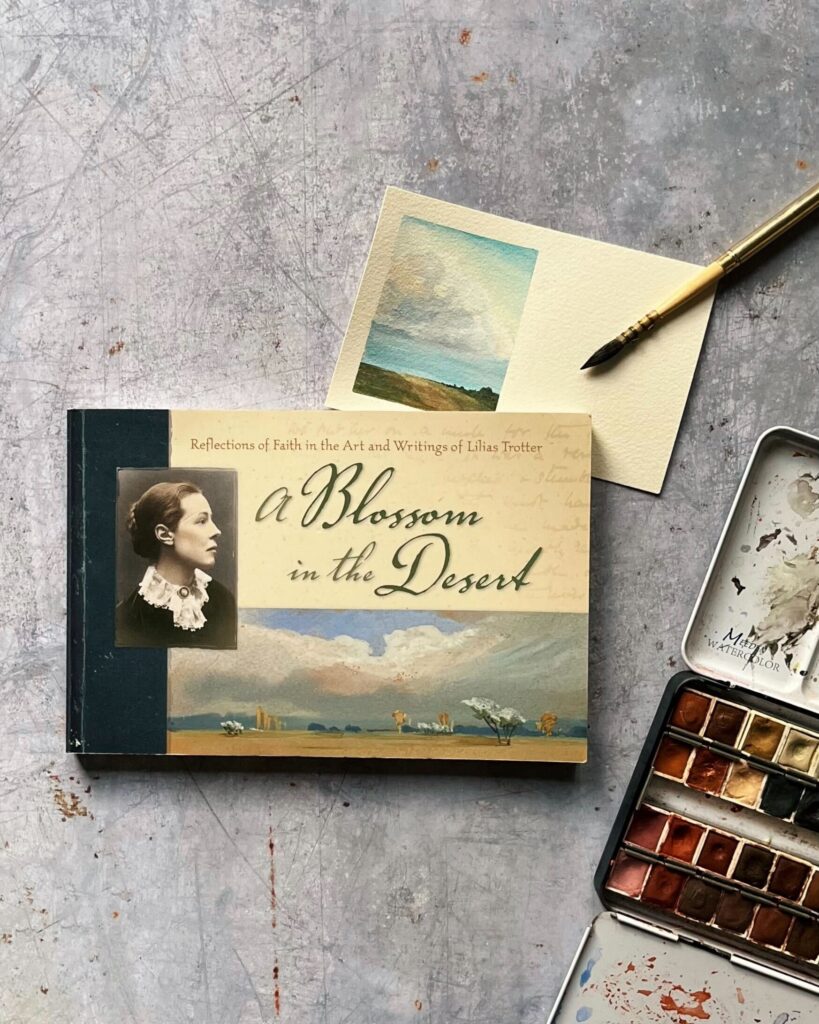
Lilias Trotter studied art under John Ruskin and was a contemporary of Charlotte Mason. It’s unknown if their paths ever crossed as Lilias left London in 1888 for Northern Africa, remaining there until her death in 1928.
In these four decades, Lilias filled 30 diaries with her breathtaking watercolors and words—all while writing devotionals and leaflets in Arabic. She even formed a relationship of respect with Sufi Mystics, for whom she wrote and illustrated The Sevenfold Secret based on the Gospel of John.
If you’d like to learn more about Lilias, see pages from her diaries, read her reflections, or watch a documentary on her fascinating faith-filled life, visit the Lilias Trotter Legacy.
@rbaburina
March 23, 2023
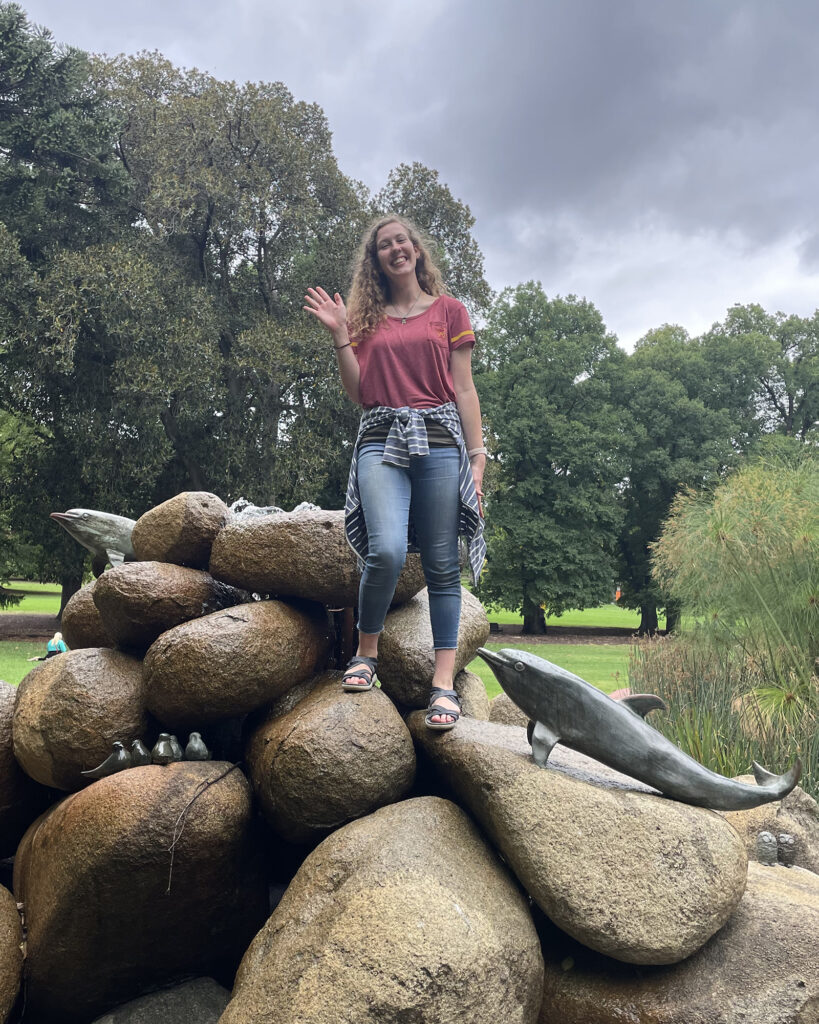
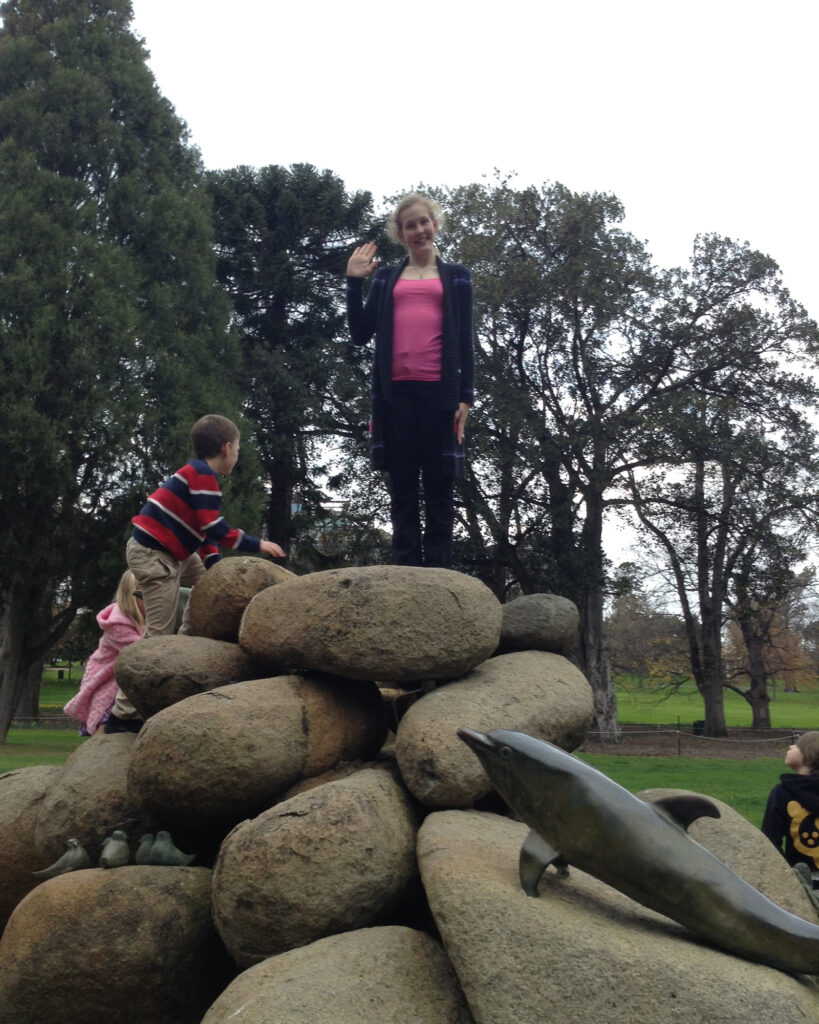
In her third volume, Charlotte Mason celebrates one of the outcomes of her method of education: “Then, too, there is continuity in their education. Little children are always eager to know; but the desire for knowledge seldom survives two or three years of school-life. But these children begin on lines that go on from the first baby lessons, through boyhood, girlhood, womanhood, motherhood; there is no transition stage, but simple, natural, living progress.”
Years ago the desire for knowledge was alive and well when I brought my daughter with me on a business trip to Australia. She took in the sights and sounds and stored them in the living archive of her heart.
Eight years later she was back in Australia, but not with dad this time. Now she was with students and professors. Walking through a park, something triggered a memory. “I’ve seen those stones before,” she thought. So she recreated a moment for the camera.
The books have changed. It’s no longer Wild Animals I have Known. Now it’s “gaining insight into and experiencing the agricultural production, business, trade, and culture of Australia.” But the love for knowledge is the same. And the person is too.
@artmiddlekauff
March 24, 2023
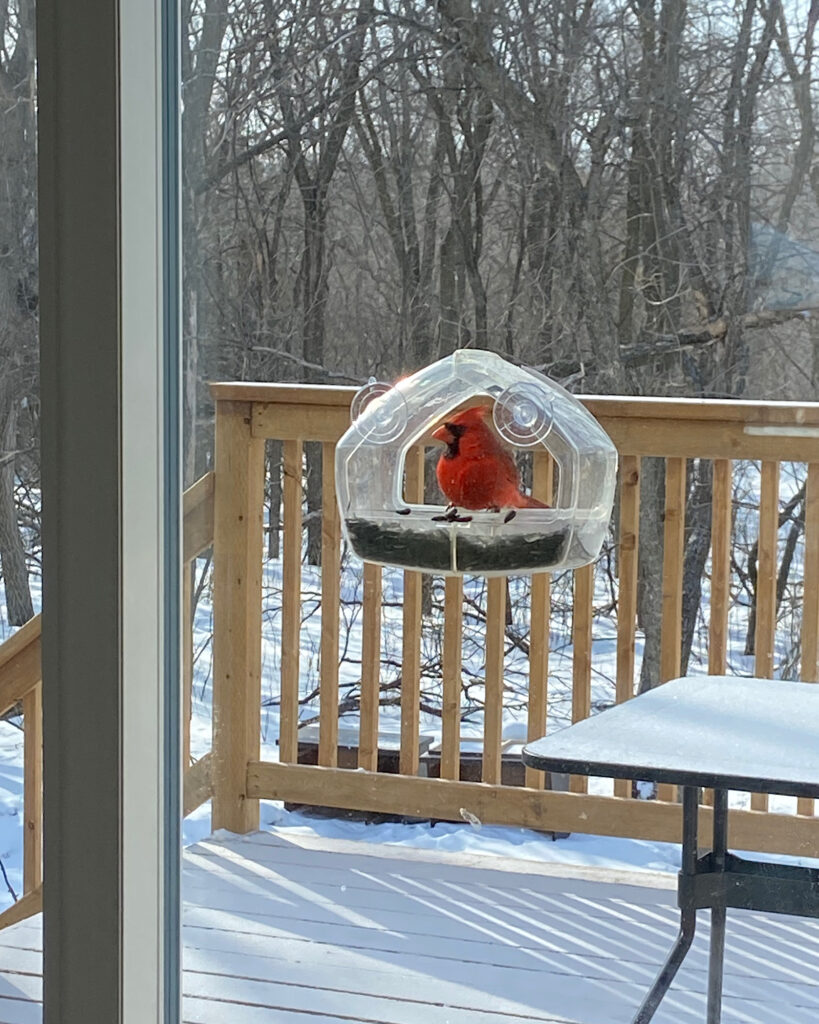
You guys! He came to my feeder! And he is coming back all the time!!!
Still no wife, though. I’m sure she is out there somewhere. I just haven’t been able to spot her yet!
@antonella.f.greco
March 25, 2023

“Some of the immediate results of Cardboard Sloyd training are, deftness of fingers, accuracy of eye, and perfection of finish, all unconsciously acquired by the enthusiastic worker. In the opinion of experts no other handicrafts afford so good an ethical training as that gained through a course of Sloyd. The exactitude and truthfulness of the work promotes the tendency to veracity and uprightness in conduct; firmness in the use of tools leads to decision of action; while the discrimination between good and bad work, gained by experience goes far towards choosing between what is valuable or worthless in life.”
— J. W. Devonshire, L’Umile Pianta, March, 1905
For everything you need to know to get started with paper or cardboard sloyd, check out our Sloyd Resources page.
📷 @aolander
March 26, 2023
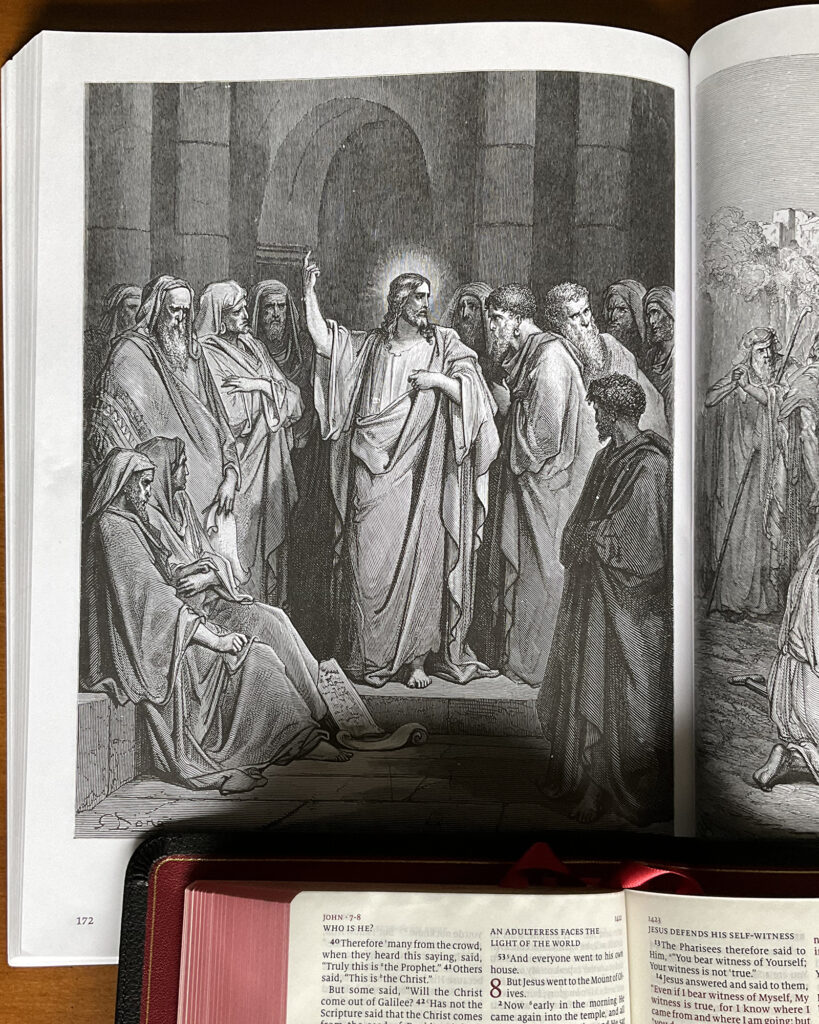
The reader of Parents and Children can be a bit unnerved when reaching Chapter 5. It starts out very promising: Mason proposes to explore “How to fortify the children against the doubts of which the air is full.” But then on the next page she says that “‘Evidences’ are not Proofs.” And in a jarring sentence she claims that “the Christian apologist is open to the imputation conveyed in the keen proverb, qui s’excuse, s’accuse.”
Many parents who love the Charlotte Mason method quietly sidestep this advice. Early on, I followed a well-established Charlotte Mason curriculum whose booklist included works by a well-known apologist. With that for “air cover,” my family enjoyed (and devoured) those books. I never had the sense that by doing so, je m’accuserais.
But I have come to see that Mason was on to something. “The truth by which we live must needs be self-evidenced, admitting of neither proof nor disproof,” she wrote. Her words anticipated the writings of philosopher Alvin Plantinga, who argued that faith in God is “properly basic.” In short, we believe in God because the Holy Spirit tells us to.
Jesus performed many astonishing miracles. Guards were sent to abduct him, but they were stopped dead in their tracks. Not by signs and wonders or by Christ disappearing from their midst. Not by bolts of lightning or by cracks in the earth. Not by the logic of philosophers or by the authority of leaders. All of their powers and all of their weapons weapons were held at bay by one thing: words. “Never man spake as this Man.”
I love Christian evidences and I love the work of apologists. But there is something that I love even more: the words of Christ. In the company of the Holy Spirit, they stand above proof or disproof. Charlotte Mason’s poem today explores the nature of faith and the reaction of the guards. May you prayerfully read or listen to it, and invite the Holy Spirit to convince you of the truth that admits of no other response but “Yes.”
Find the poem here.
@artmiddlekauff